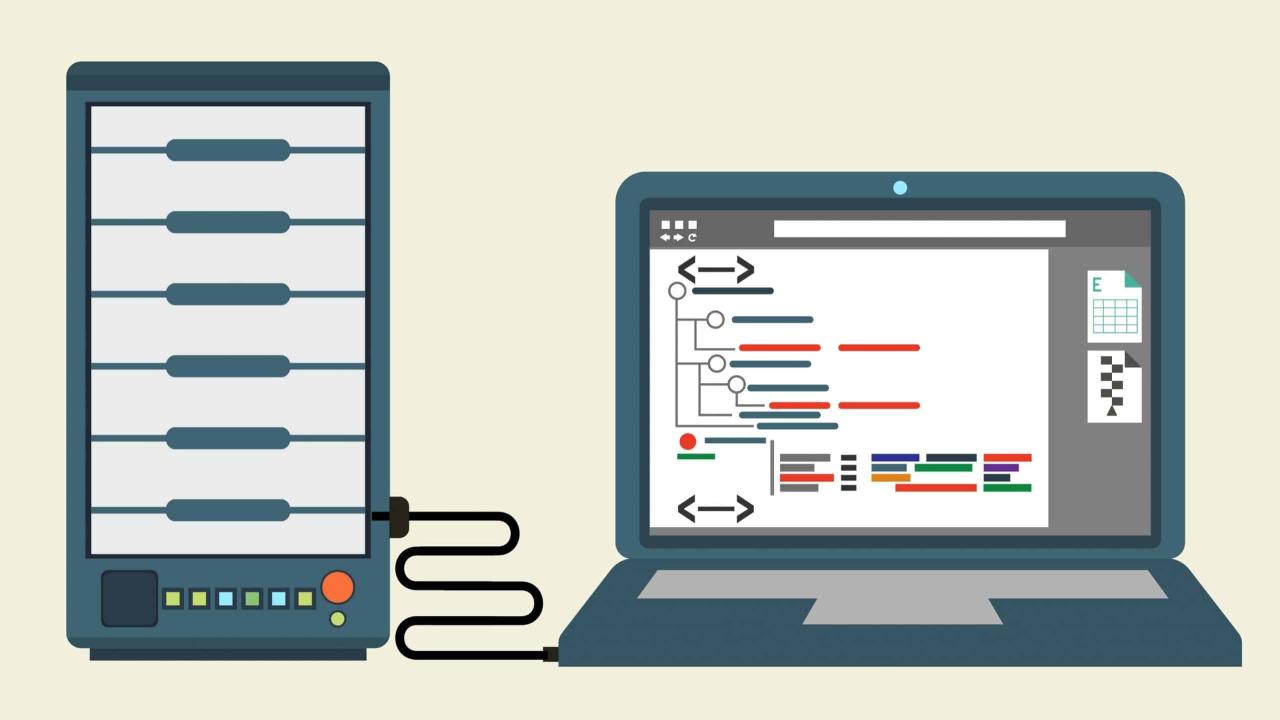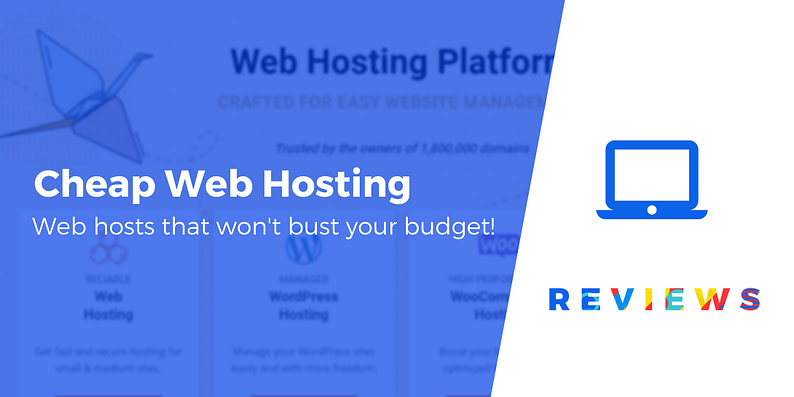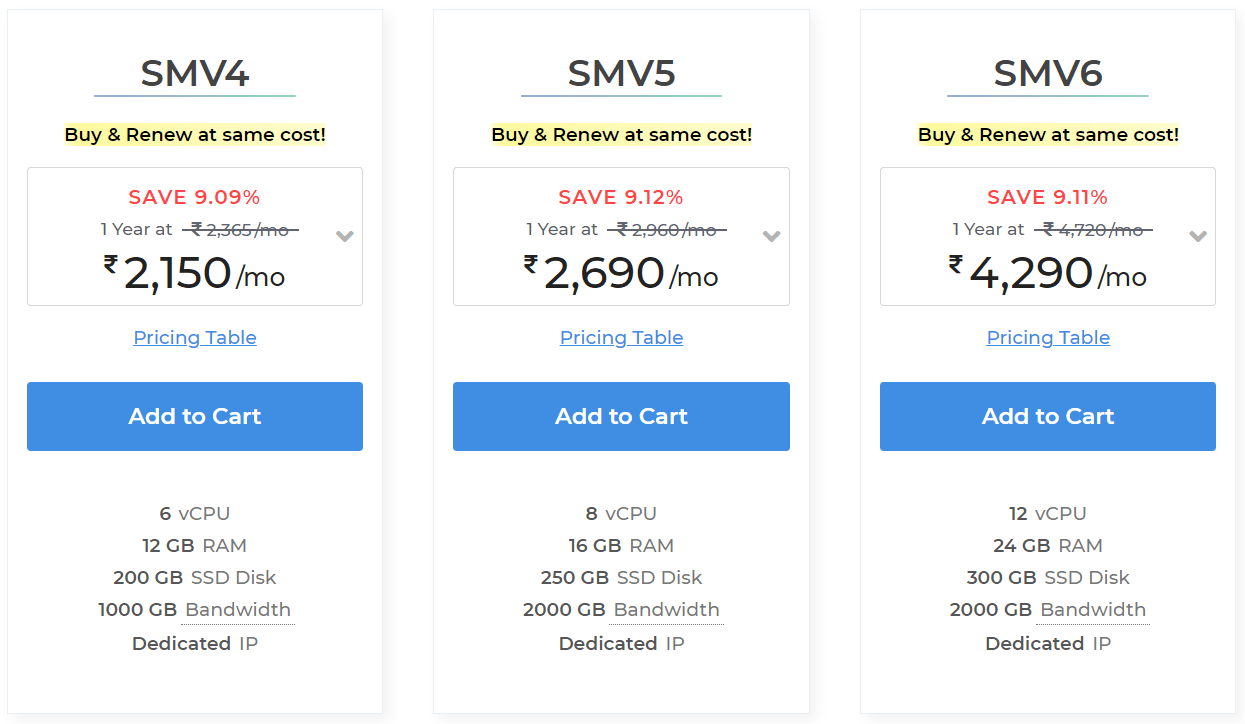Cheap web server hosting is a popular choice for website owners seeking to save money without compromising performance. While the idea of “cheap” might conjure images of unreliable servers and limited features, there are reputable providers offering affordable plans that cater to various needs. Understanding the factors that influence hosting costs, exploring different hosting types, and identifying essential features are crucial for making informed decisions.
Navigating the world of cheap web hosting requires a balance between affordability and essential features. This guide will delve into the intricacies of cheap web server hosting, examining the pros and cons of different hosting types, essential features to consider, and strategies for finding reputable providers. We’ll also explore common mistakes to avoid and discuss the future of cheap web hosting in the ever-evolving landscape of web technology.
Essential Features for Cheap Web Hosting

Choosing the right web hosting plan is crucial for any website, especially when working with a limited budget. While cheap web hosting options might seem tempting, it’s important to understand the essential features that ensure your website performs well and remains secure.
Storage Space
Storage space is the amount of disk space allocated to your website to store files, including images, videos, and other website content. The amount of storage space you need depends on the size and complexity of your website.
A website with a lot of images and videos will require more storage space than a simple text-based website.
- Shared hosting plans typically offer a limited amount of storage space, ranging from 5 GB to 100 GB. This can be sufficient for small websites with minimal content.
- VPS hosting plans offer more storage space, ranging from 20 GB to 100 GB or more. This is a good option for websites with more content or higher traffic.
- Cloud hosting plans offer virtually unlimited storage space, making them ideal for large websites or websites with rapidly growing content.
Bandwidth, Cheap web server hosting
Bandwidth refers to the amount of data that can be transferred to and from your website each month. It’s important to choose a hosting plan with enough bandwidth to handle your website’s traffic.
Websites with a lot of visitors or large files, such as videos, require more bandwidth.
- Shared hosting plans typically offer limited bandwidth, ranging from 10 GB to 100 GB per month. This may be sufficient for websites with low traffic.
- VPS hosting plans offer more bandwidth, ranging from 50 GB to 100 GB per month or more. This is suitable for websites with moderate to high traffic.
- Cloud hosting plans offer unlimited bandwidth, making them ideal for websites with high traffic or large files.
Database Support
A database is a structured collection of data that your website uses to store information, such as user accounts, product details, and website content. Most websites use databases to function properly.
Popular database management systems include MySQL and PostgreSQL.
- Shared hosting plans typically include support for MySQL databases, which is suitable for most websites.
- VPS hosting and cloud hosting plans offer support for a wider range of database management systems, including MySQL, PostgreSQL, and MongoDB.
Email Accounts
Email accounts are essential for communicating with visitors, customers, and business partners.
Web hosting plans typically include a limited number of email accounts, ranging from one to ten or more.
- Shared hosting plans usually include a few email accounts, sufficient for small businesses or personal websites.
- VPS hosting and cloud hosting plans offer more email accounts, making them suitable for larger businesses or websites with a high volume of email traffic.
Security Features
Security is essential for protecting your website and your visitors’ data.
Common security features include firewalls, malware scanning, and SSL certificates.
- Shared hosting plans often include basic security features, such as firewalls and malware scanning.
- VPS hosting and cloud hosting plans typically offer more advanced security features, such as dedicated firewalls, intrusion detection systems, and regular security updates.
Cost-Saving Tips for Web Hosting: Cheap Web Server Hosting

Finding affordable web hosting is a crucial aspect of running a successful website. But even with budget-friendly plans, there are ways to further optimize your costs and maximize your resources. Implementing smart strategies can significantly reduce your hosting expenses without compromising performance.
Optimize Website Performance
Optimizing your website’s performance can have a direct impact on your hosting costs. A faster website requires less server resources, leading to lower consumption and potentially lower hosting bills.
- Minimize Image Sizes: Large images can significantly slow down your website. Compressing images without compromising quality can dramatically reduce their file size. Tools like TinyPNG and Kraken.io can help you achieve this.
- Optimize Website Code: Clean and efficient code can significantly improve your website’s loading speed. This involves removing unnecessary code, minifying CSS and JavaScript files, and leveraging browser caching.
- Utilize Caching Plugins: Caching plugins store copies of your website’s content, allowing visitors to access them quickly. This reduces the workload on your server, improving performance and potentially reducing your hosting costs.
Leverage Flexible Payment Options
Many web hosting providers offer flexible payment options that can help you manage your expenses.
- Monthly Billing: Pay for your hosting on a monthly basis, offering flexibility and avoiding long-term commitments. This can be beneficial if your website’s traffic fluctuates or you’re unsure about your future needs.
- Annual or Multi-Year Plans: Opting for longer-term commitments can often lead to significant discounts. This strategy is ideal for websites with consistent traffic and long-term plans.
Choose the Right Hosting Plan
Choosing the right hosting plan is essential for balancing performance and cost.
- Shared Hosting: This is the most affordable option, but resources are shared among multiple websites. It may not be suitable for high-traffic websites or those requiring dedicated resources.
- VPS Hosting: Offers more resources and control than shared hosting. It’s a good choice for websites with moderate traffic or specific performance needs.
- Cloud Hosting: Provides scalability and flexibility. You pay only for the resources you use, making it a cost-effective option for websites with fluctuating traffic or resource demands.
Common Mistakes to Avoid
Choosing cheap web hosting can save you money, but it’s crucial to avoid common mistakes that can lead to website performance issues, security vulnerabilities, and even data loss. By understanding these pitfalls and taking preventative measures, you can ensure a reliable and cost-effective hosting solution.
Prioritizing Price Over Everything Else
It’s tempting to go for the cheapest option, but focusing solely on price can lead to significant problems. While cost is an important factor, it shouldn’t be the only one considered.
- Inadequate Resources: Cheap plans often come with limited storage, bandwidth, and processing power, which can impact your website’s speed and performance, especially as your traffic grows.
- Limited Features: Basic plans may lack essential features like SSL certificates, regular backups, and email accounts, leaving your website vulnerable and difficult to manage.
- Poor Customer Support: Low-cost providers often offer limited or unresponsive customer support, making it challenging to resolve technical issues quickly.
Solution: Strike a balance between price and value. Consider your website’s needs, expected traffic, and future growth potential. Look for providers offering a good mix of features, resources, and reliable support at a reasonable price.
Overlooking Security Features
Security should be a top priority for any website, especially when using cheap hosting. Inadequate security measures can leave your website vulnerable to attacks, data breaches, and malware infections.
- Lack of SSL Certificates: An SSL certificate encrypts data transmitted between your website and visitors, ensuring secure connections and protecting sensitive information. Cheap plans may not include SSL certificates, exposing your website to security risks.
- Limited Firewall Protection: Firewalls act as barriers, preventing unauthorized access to your website. Cheap plans may offer basic firewall protection, which might not be sufficient to withstand sophisticated attacks.
- Absence of Regular Backups: Data loss can occur due to technical failures, hacking attempts, or even accidental deletions. Regular backups are crucial for recovering data and minimizing downtime. Cheap plans may not include backup services or offer limited backup options.
Solution: Choose a provider that offers robust security features like SSL certificates, strong firewall protection, and regular backups. Inquire about their security protocols and data encryption methods. Consider investing in additional security measures like malware scanning and website firewalls.
Choosing a Provider with Limited Support
Reliable customer support is essential for addressing technical issues, resolving problems, and ensuring smooth website operation. Limited support can lead to delays, frustration, and downtime.
- Unresponsive Live Chat or Email Support: Waiting hours or even days for a response can be detrimental to your website’s availability and user experience.
- Lack of Phone Support: Phone support offers immediate assistance for urgent issues, which can be crucial for critical situations. Cheap plans often lack phone support or restrict access to it.
- Limited Knowledge Base or Documentation: Comprehensive documentation and a knowledge base can help you resolve common issues independently. Cheap providers may offer limited or outdated resources, making it difficult to find answers.
Solution: Look for providers offering multiple support channels, including live chat, email, and phone support. Check their response times and availability. Read reviews and testimonials to gauge the quality and responsiveness of their support team.
Not Reading the Fine Print
Cheap hosting plans often come with hidden costs and limitations. Carefully reviewing the terms and conditions can prevent unpleasant surprises and ensure you’re getting the value you expect.
- Hidden Fees: Some providers charge additional fees for features like domain registration, SSL certificates, or website backups. These fees can add up and significantly increase your hosting costs.
- Limited Bandwidth or Storage: Cheap plans often have strict limits on bandwidth and storage, which can lead to slow loading times, website downtime, or even data loss if you exceed the allocated limits.
- Restricted Features: Basic plans may restrict access to advanced features like email marketing tools, website builders, or content management systems (CMS), limiting your website’s functionality.
Solution: Read the terms and conditions carefully, paying attention to hidden fees, bandwidth and storage limitations, and feature restrictions. Compare different providers and choose one that offers transparent pricing and a comprehensive package that meets your needs.
Case Studies and Examples

Real-world examples demonstrate how successful websites have thrived on cheap web hosting plans, showcasing the potential for cost-effective solutions. These case studies illustrate the importance of choosing the right hosting plan based on specific website needs and highlight the challenges and successes faced by these websites.
Successful Websites Hosted on Cheap Plans
These case studies showcase the viability of using cheap web hosting for successful websites.
- Example 1: A small business website built on a shared hosting plan experienced a significant increase in traffic after launching a successful marketing campaign. The hosting provider, known for its affordable prices, provided reliable performance and sufficient resources to handle the increased traffic, proving that cheap hosting can be sufficient for growing websites.
- Example 2: A personal blog hosted on a budget-friendly VPS plan attracted a large following due to its unique content and engaging writing style. The VPS plan provided the necessary resources and flexibility for the blog’s growth, demonstrating the potential for cheap hosting to support content-driven websites.
Challenges and Successes
These case studies highlight the importance of choosing the right hosting plan based on specific website needs and provide insights into the challenges and successes encountered.
- Challenge: One challenge faced by websites hosted on cheap plans is the potential for limited resources, which can impact performance and scalability. Websites experiencing rapid growth may need to upgrade their hosting plan to accommodate increased traffic and resource demands.
- Success: Despite the potential challenges, many websites hosted on cheap plans have achieved significant success, demonstrating the viability of cost-effective hosting solutions. Choosing the right plan based on specific needs and proactively monitoring performance can mitigate potential challenges and ensure a successful website experience.
Practical Examples of Cheap Hosting
Here are some practical examples of how cheap web hosting can be used to create successful websites:
- Personal Blogs and Portfolios: Cheap hosting plans are ideal for personal blogs and portfolios, providing a cost-effective platform to showcase work and connect with an audience.
- Small Business Websites: For small businesses with limited budgets, cheap hosting offers a cost-effective solution to establish an online presence and reach potential customers.
- Non-profit Organizations: Non-profit organizations can leverage cheap hosting to create websites that promote their mission, connect with supporters, and raise funds.
End of Discussion
Finding cheap web server hosting doesn’t have to be a daunting task. By understanding the factors that influence costs, exploring different hosting types, and prioritizing essential features, you can confidently choose a plan that meets your needs without breaking the bank. Remember to prioritize security, support, and reliability to ensure a smooth and successful online experience.




